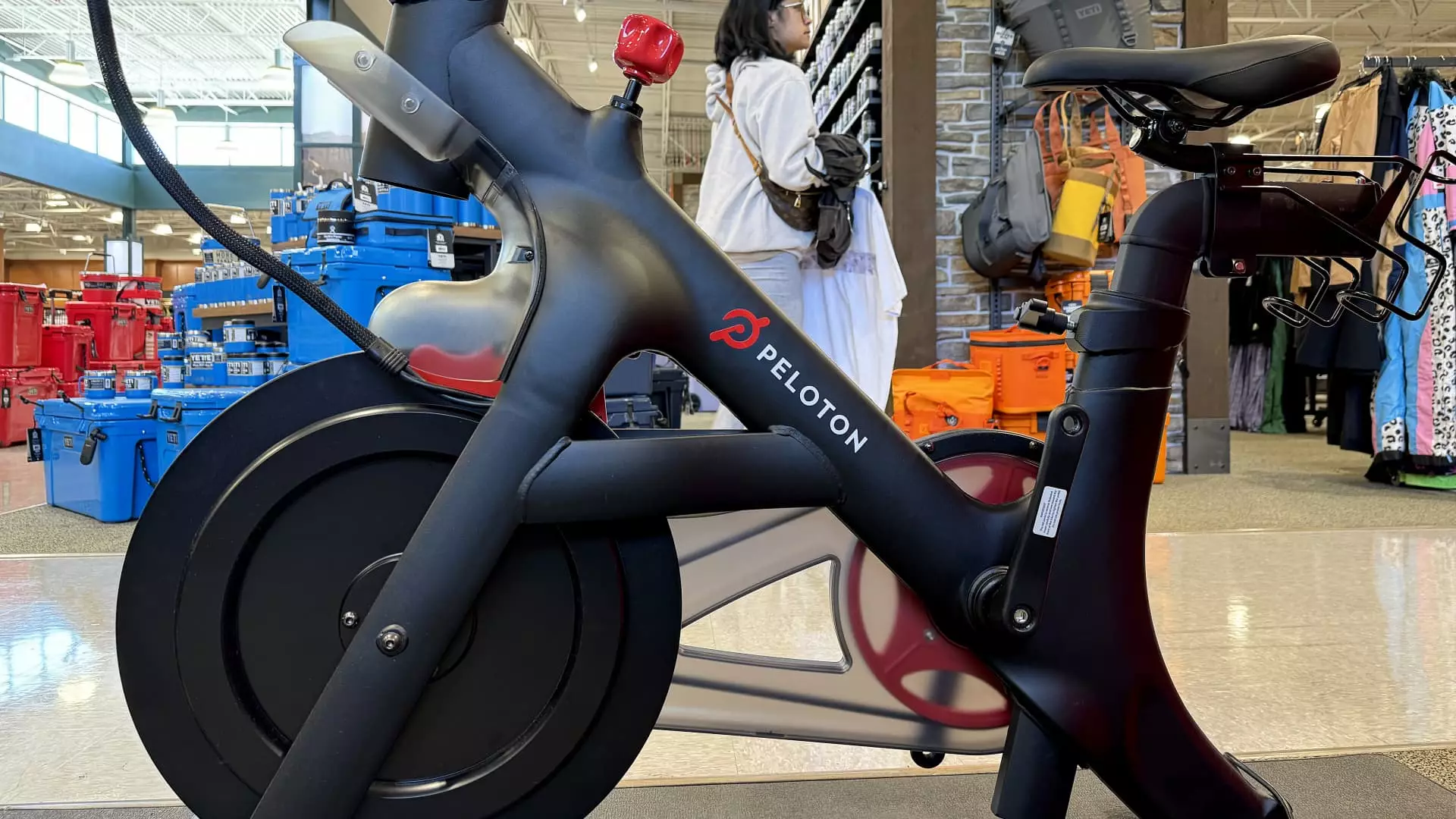In an age where sustainability is more than just a buzzword, Peloton’s recent launch of Repowered, their dedicated marketplace for used equipment, sends shockwaves through the fitness industry. This bold initiative comes at a time when countless Peloton bikes and treadmills lie dormant in homes across America, a testament to the fleeting nature of consumer fitness enthusiasm. Acknowledging the alarming trend of buyers discarding their unutilized equipment, Peloton is attempting to capitalize on a lucrative niche—the resale market—where buyers seek deals and sellers look to recoup losses.
This marketplace, which leverages generative AI to guide sellers in pricing their used gear, aims to attract both sellers and buyers by offering a transparent and streamlined process. While enabling sellers to get 70% of the sales price may sound generous, one could argue that the remaining 30% is a price Peloton extracts not only for facilitating the transaction but also for re-entering the realm of growth. Are they building a community or merely creating another revenue stream?
The Illusion of Ownership and the Subscription Model Trap
Peloton’s business model has been both lauded and lambasted for its reliance on ongoing subscription fees—often seen as the financial heart of the company. Customers invest in high-quality equipment, only to find themselves shackled by monthly fees that some users eventually abandon, leading to subscriptions and exercise machines rising as an infamous cautionary tale. The release of Repowered does more than offer a resale opportunity; it delivers a lifeline to Peloton’s dwindling membership base trapped in a cycle of buyer’s remorse.
Despite Peloton’s claims that they are providing a “safe and comfortable way” for users to buy and sell, one must question if Repowered is a service or a symptom of a deeper malaise within the company. Yes, it acknowledges the brutal reality of churn rates with figures suggesting that second-hand buyers tend to sustain their memberships longer. However, isn’t this really an admission that the original model has faltered? The question remains: Is Peloton genuinely fostering user autonomy or is it merely shielding itself from the fallout of its overzealous expansion?
Repowered vs. Competitors: A Market Overwhelmed
Peloton’s move with Repowered has sparked immediate competition with existing platforms like Facebook Marketplace and Trade My Stuff, a startup already dealing in used Peloton gear. While having a branded resale marketplace might feel like a coherent strategy, it also signals a possible misreading of market dynamics. The resale space is not just about convenience; it’s about trust, user experience, and the context of a genuine community built around fitness goals and shared experiences.
Trade My Stuff’s founder, Ari Kimmelfeld, expressed an interest in collaboration that Peloton rebuffed. One wonders if repelling potential allies in favor of a solitary endeavor will bolster Repowered or doom it to serve merely as a challenging platform against well-established competitors. With giants like Facebook already accommodating countless peer-to-peer exchanges, can Peloton bring enough uniqueness to the table to sway opinions?
The Future: A Step Toward Sustainability or a Short-Term Fix?
Peloton’s initiative reflects a growing trend toward sustainability and circular economies—values that resonate deeply with today’s consumers. On the surface, Repowered may appear as a revolutionary strategy towards a more sustainable universe of fitness equipment. However, it is crucial to ponder whether these efforts are genuine or reactive.
The marketplace is launching in cities with significant cultural clout: New York, Boston, and Washington D.C. Yet, marketers must be mindful that urban centers can often enforce unique buyer behaviors that may not resonate across the nation. Are these locations just market tests, or are they symbolic—the vanguard for potential nationwide support?
As Peloton charts its path ahead, it is imperative for them to ensure that Repowered transcends just being another financial maneuver. If not, this move might instead signify a capitulation to the imperfections of their business model, acknowledging that consumer fireworks frequently fizzle out, leaving in their wake a surprising level of consumer disillusionment. In their quest for revival, Peloton risks making Repowered a testament to missed opportunities rather than a beacon of innovative resilience in fitness technology.


Leave a Reply